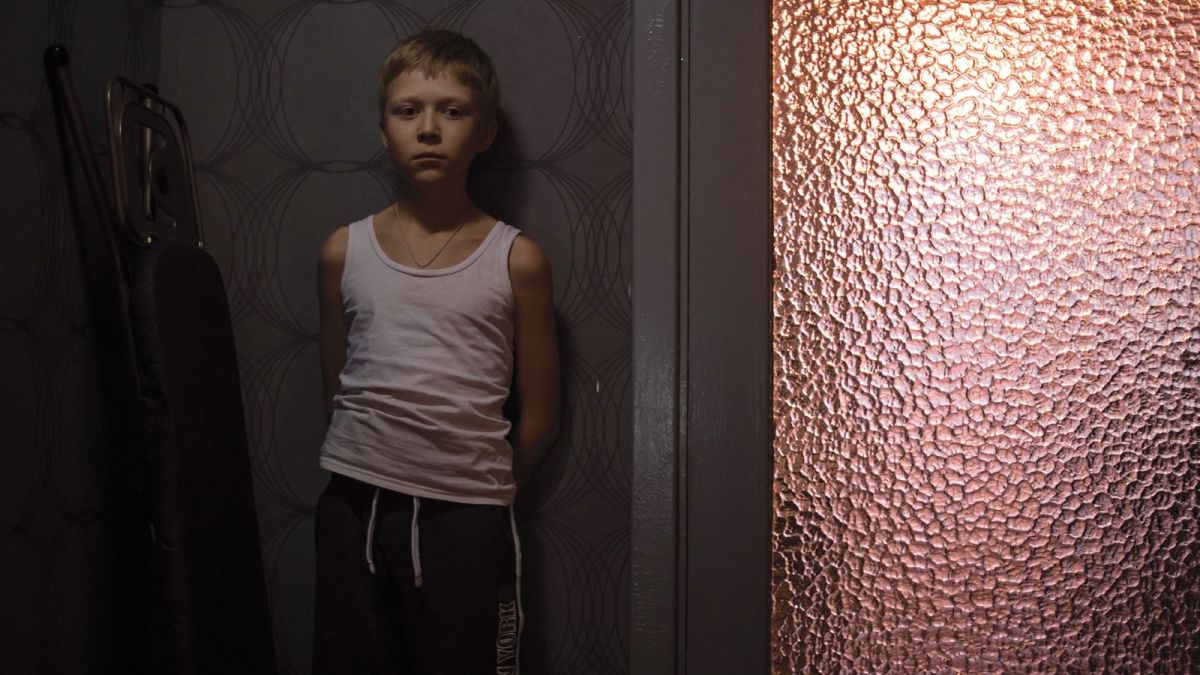Review: Loveless
By James Gill

On the surface, Andrey Zvyagintsev’s Loveless depicts the heart wrenching disappearance of a divorcing couple’s son and their subsequent, fruitless search. As the film delves deeper however it reveals a much broader social commentary, about how the ever-increasing desire for social status and instant gratification paralyses the population and restricts them from ever achieving long term happiness.
When 12 year old Alexey finishes school he doesn’t run off with the other children, nor does he go straight home, instead he goes to the park and wanders around aimlessly. He is an only, lonely child, whose parents Zhenya and Boris venomously row seemingly every time they are confined to the same room.
To escape the bleak and harsh environment of his family he must roam the bleak and harsh Moscow parks and abandoned buildings. One night, when his parents think he is asleep they have a particularly vitriolic dispute, with both sides voicing their utter contempt for each other, yet both in agreement that their son Alexey is holding them back from moving on fully.
Zhenya storms off to use the bathroom but as she leaves the camera lingers. The door swings open, and we track to the left with it to reveal Alexey, who horrifically heard ever word. His facial expression remains in the viewer’s mind throughout the rest of the film.
Not long after, we see Alexey leave the house, run down the apartment buildings steps and into the park. His parents, so caught up in trying to live new lives with their lovers, being as presumptuous as to believe the other will take care of their child, don’t notice his disappearance for two days. Even then Boris treats it as a nuisance; he has no time to care about this, his mind busy elsewhere.
For instance, how can he divorce Zhenya and remarry his impregnated lover quickly enough that his incredibly conservative boss doesn’t notice anything is awry, for being a decent family man is one of the qualifications needed for his company. Zhenya on the other hand is too busy pampering herself to please her new, older, richer lover. Both spend the night having passionate sex, ignorant to the fact that their son is gone.
Cinematographer Mikhail Krichman, who has worked on all Zvyagintsev’s films, uses a wide lens to juxtapose the worn Russian landscape with the emotionless faces of the characters. There is a deep coldness to this style. The characters, although right in front of your eyes, feel miles away.
The impact of this is emphasised by the lack of colour throughout the film, the Moscow landscapes are washed out, any positive emotions long gone. Primary colours exists in just two forms in Loveless; the social media of the Muscovites’ smartphones and the red jackets of the volunteer search and rescue team as they comb the park in a line, looking for a body.
Later in the film Zhenya and Boris, who eventually drop everything to try and find Alexey, get a call. A body of a young boy has been found matching their son, and they are to discern whether it is him. This scene is as devastating as the bathroom scene. When the body bag is unzipped Zhenya screams and Boris collapses in tears, the boy is not theirs, but the fact that it could have been is too much to handle. For just a moment there is genuine love between them.
Throughout the search for Alexey the camera moves away from the face of the characters, to peer out of a frosted window as the scene unfolds, reminiscent of Taxi Driver when Robert de Niro’s character makes a difficult phone call and the camera tracks to look down the corridor instead.
In both cases the movement functions as an escape from the anguish present in the original frame. Zhenya and Boris put up barriers to protect them from their loss and suffering in an attempt to find new happiness with their lovers, but like the buildings in Moscow those walls decay and fall down. They can jump from lover to lover but they will never escape the past, their pain will always catch them.







